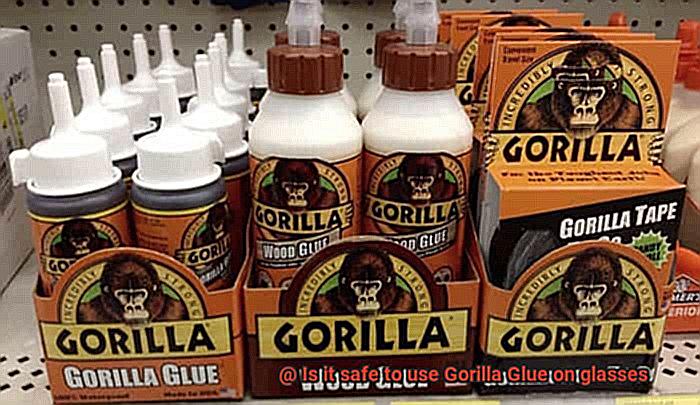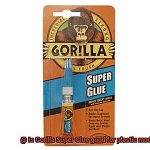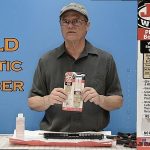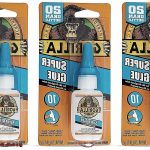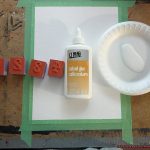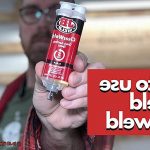Imagine this: your beloved pair of spectacles takes a tumble, and your heart plummets as the lens pops out. Panic ensues, and you frantically search for a quick remedy.
Then, like a flash of genius, you recall that trusty tube of Gorilla Glue nestled in your toolkit. But before you reach for it, pause for a moment… Is it actually safe to use Gorilla Glue on glasses?
Fear not, my friends. As an adhesive connoisseur extraordinaire, I am here to unveil the truth.
So grab those glasses (if they’re still intact), perch them upon your nose bridge once more, and let us plunge into this sticky predicament together.
What is Gorilla Glue?
Contents
- 1 What is Gorilla Glue?
- 2 Why Is Gorilla Glue Not Recommended for Glasses?
- 3 Potential Damage to Lenses and Frames
- 4 Moisture-Activated Adhesive Concerns
- 5 Difficulty of Removing Gorilla Glue from Glasses
- 6 Recommended Adhesives for Glasses Repairs
- 7 Consulting an Eyewear Professional or Optician
- 8 Warranty Considerations
- 9 Conclusion
In the realm of adhesive solutions, one brand stands head and shoulders above the rest – Gorilla Glue. This formidable glue is a force to be reckoned with, boasting unmatched strength and versatility. Whether you’re a master DIY enthusiast or a seasoned professional, Gorilla Glue is the go-to choice for all your bonding needs. In this article, we delve into the world of Gorilla Glue, exploring its composition, features, and why it has become a staple in the glue universe.
What is Gorilla Glue?
At its core, Gorilla Glue is a polyurethane-based adhesive that has garnered a reputation for its unrivaled bonding capabilities. This adhesive comes in various forms – liquid, gel, and tape – catering to diverse application requirements.
Features of Gorilla Glue:
- Versatility: The true beauty of Gorilla Glue lies in its ability to bond an impressive array of materials. From wood and metal to stone, ceramic, fabric, and even certain plastics, this adhesive can handle it all. Its versatility makes it the ideal companion for countless projects and repairs.
- Waterproof and Weatherproof: Not afraid to get wet or battle the elements, Gorilla Glue laughs in the face of water. Its resilience against moisture and unwavering ability to withstand harsh weather conditions make it a top choice for both indoor and outdoor applications. With Gorilla Glue, you can rest easy knowing your creations will stand strong against any storm that comes their way.
- Durability and Longevity: When it comes to strength, Gorilla Glue holds nothing back. It establishes a bond that can withstand the test of time, triumphing over even the most demanding tasks. Whether you’re tackling heavy-duty projects or making repairs that need to endure, Gorilla Glue is your steadfast companion.
- Easy to Finish: The beauty of Gorilla Glue lies not just in its strength, but also in its adaptability. Once fully cured, this adhesive dries to a light tan color, providing a neutral canvas for your creative endeavors. And if you desire a flawless finish, fear not. Gorilla Glue can be sanded or painted over with ease, allowing you to achieve the desired aesthetic for your masterpiece.
- Extended Shelf Life: Unlike some adhesives that lose their effectiveness over time, Gorilla Glue stands tall with an extended shelf life. This means you can keep it on hand for those spur-of-the-moment projects or simply store it away for future use without worrying about its potency diminishing.
Why Is Gorilla Glue Not Recommended for Glasses?
Gorilla Glue, the mighty adhesive that can conquer any DIY project, is not a suitable choice for glasses repairs. Let’s take a closer look at why this powerful glue should stay far away from your delicate frames.
First and foremost, Gorilla Glue’s expanding nature is a recipe for disaster when it comes to glasses. This adhesive has the unique ability to expand and form a foam-like substance upon contact with moisture. While this might have its benefits in other applications, it spells trouble for your glasses frames. The expansion can lead to breakage or misshaping, leaving you with wonky-looking spectacles that are far from fashionable.
But that’s not all. Gorilla Glue is notorious for creating an incredibly strong bond. This is fantastic when you need something to stay put forever, but it becomes a headache when it comes to glasses repair. Imagine needing to replace your lenses or frames down the line, only to find that the Gorilla Glue has created such a strong bond that removing it without causing further damage is nearly impossible. Talk about a frustrating situation.
And here’s another reason to steer clear of Gorilla Glue for your glasses: it is not designed to withstand constant exposure to moisture and temperature changes. Glasses go through these changes every day, from rainy weather to hot summers, and the glue may degrade or lose its adhesive properties over time. The last thing you want is for your beloved glasses to fall apart or irritate the delicate skin around your eyes.
Oh, and don’t forget about warranties. Using Gorilla Glue on your glasses may void any warranty or guarantee provided by the manufacturer. Most eyewear companies explicitly state that unauthorized alterations or repairs using adhesives like Gorilla Glue will make any warranty null and void. So, if you want to keep your warranty intact and have peace of mind, it’s best to avoid using Gorilla Glue on your glasses.
To sum it all up, Gorilla Glue may be the superhero of adhesives for many projects, but it’s definitely not the best choice for glasses repairs. The expanding nature, strong bond, potential degradation over time, and risk of voiding warranties make it a big no-no. Instead, trust the experts like opticians or eyewear repair specialists who have the right tools and expertise to fix your glasses without causing further damage.
Potential Damage to Lenses and Frames
We all love a good fixer-upper project, but when it comes to using Gorilla Glue on your precious spectacles, it’s time to pump the brakes. As an expert in potential damage to lenses and frames, let me break it down for you.
First and foremost, let’s talk about the frames. Your glasses frames are typically made of acetate, metal alloys, or titanium. These materials have their own unique properties and may not play nice with Gorilla Glue. This heavy-duty adhesive is designed for wood, metal, and plastic – not your delicate frames. Using Gorilla Glue on your frames can result in weak adhesion or even complete detachment. And nobody wants to see their glasses fall apart before their very eyes.
But wait, there’s more. Let’s move on to the lenses. Whether you have glass or plastic lenses, they’re not invincible. Gorilla Glue contains polyurethane adhesive, which can react with lens materials and wreak havoc. We’re talking discoloration, warping, and even cracks. Imagine squinting through a cracked lens – not a pretty sight.
Now let’s consider the application process. Gorilla Glue requires wetting the surface before bonding. Sounds simple enough, right? Not so fast. Your glasses have delicate components like nose pads and hinges that don’t take kindly to moisture. Moisture exposure can lead to corrosion or rusting of metal parts and weaken the overall structure of your beloved specs.
But what if you mess up and need to remove the glue? Brace yourself for a challenge. Gorilla Glue forms a mighty bond that laughs in the face of solvent-based adhesive removers. Trying to forcefully remove it could end up causing more damage to your lenses or frames. In some cases, you might have to wave goodbye to both and shell out for expensive replacements.
So my friends, when it comes to Gorilla Glue, glasses are not its forte. It’s best to leave your precious eyewear repairs to the professionals – the opticians and eyewear repair specialists who have the right tools and expertise to save your glasses without causing further damage. Trust me, your peepers will thank you.
Moisture-Activated Adhesive Concerns
We’ve all faced the frustration of broken glasses – a hinge that snaps, a loose screw, or even a cracked lens. It’s tempting to reach for that reliable bottle of Gorilla Glue, but before you do, let’s dive into the reasons why moisture-activated adhesives may not be the best choice for repairing your eyewear.
The Lens Dilemma:
Using moisture-activated adhesives like Gorilla Glue on glasses can spell disaster for your lenses. These adhesives expand as they cure, and if they come into contact with the lenses, distortion or even cracks can occur. Picture trying to see clearly through glasses with warped lenses – not exactly a fashionable look.
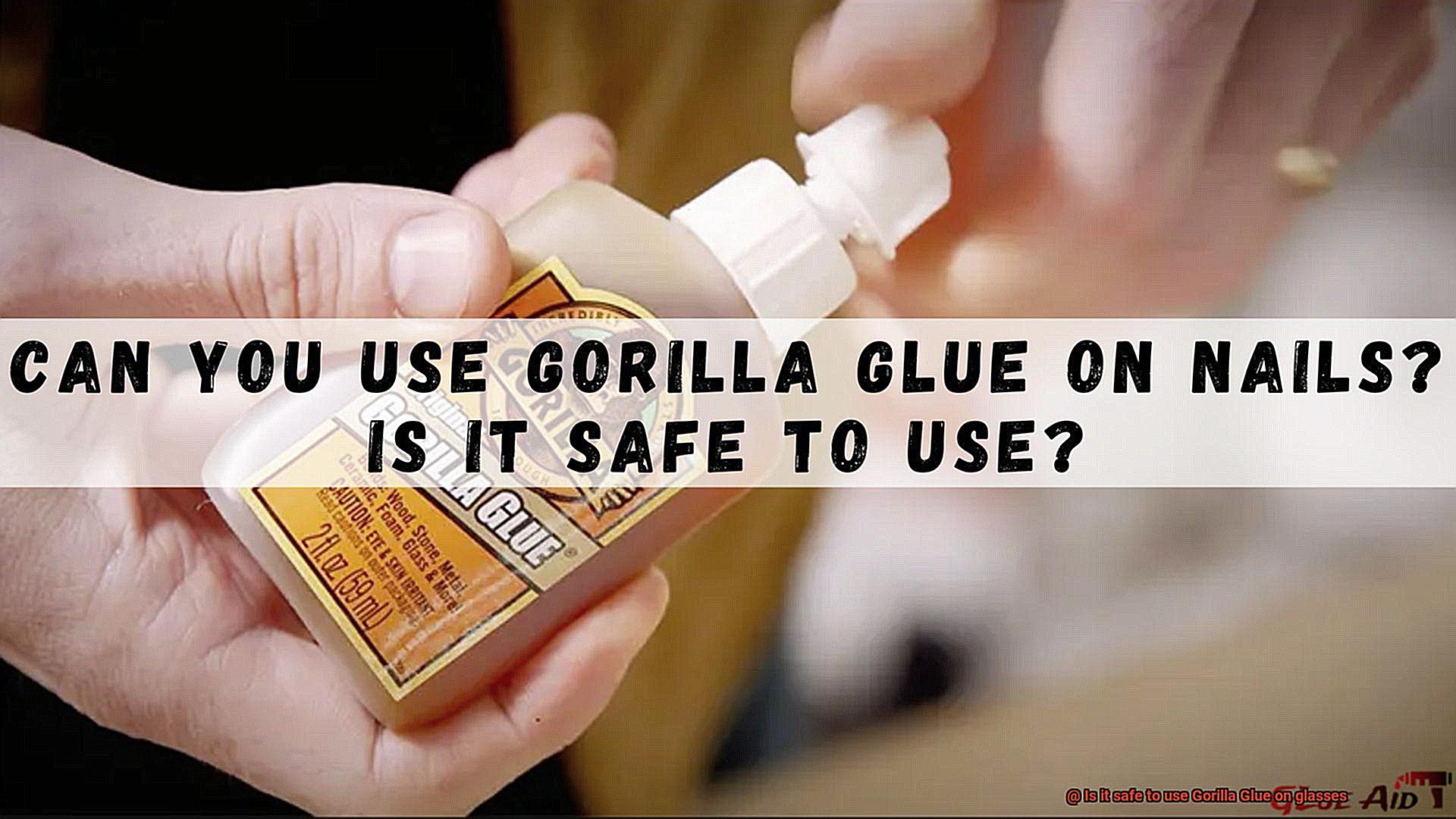
Sticky Situation:
Removing moisture-activated adhesives from glasses can be an uphill battle. Once applied, these adhesives stubbornly cling to your frames, making adjustments or future repairs a real headache. Nobody wants to risk damaging their frames or lenses just because they used the wrong adhesive.
Durability Matters:
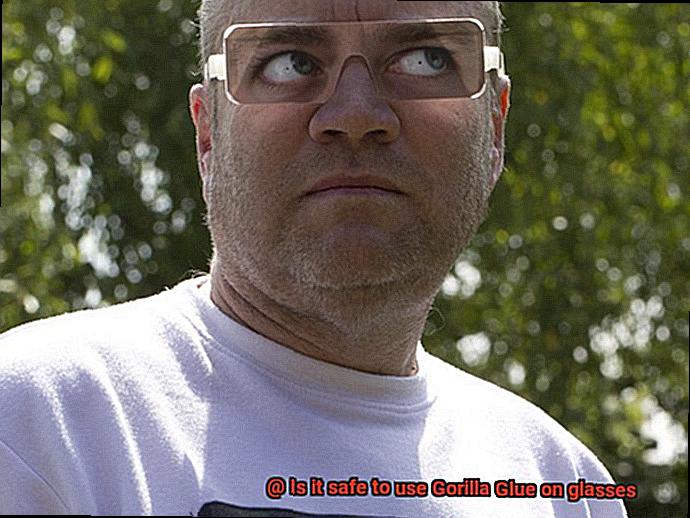
Eyeglasses endure everyday wear and tear – bending, flexing, and even accidental drops. The adhesive used for repairs needs to be strong and durable enough to withstand these forces. Unfortunately, moisture-activated adhesives may not provide the long-lasting bond needed for glasses. If the adhesive fails, you could end up with loose or falling-apart glasses – definitely not a good look when relying on them for clear vision.
Compatibility Concerns:
Different types of glasses require specific adhesives for proper bonding. Plastic frames may have different requirements than metal frames, for example. Using the wrong adhesive can lead to ineffective repairs or even further damage to your glasses. It’s always best to consult a professional optician or eyewear repair specialist who can guide you to the right adhesive for your specific glasses.
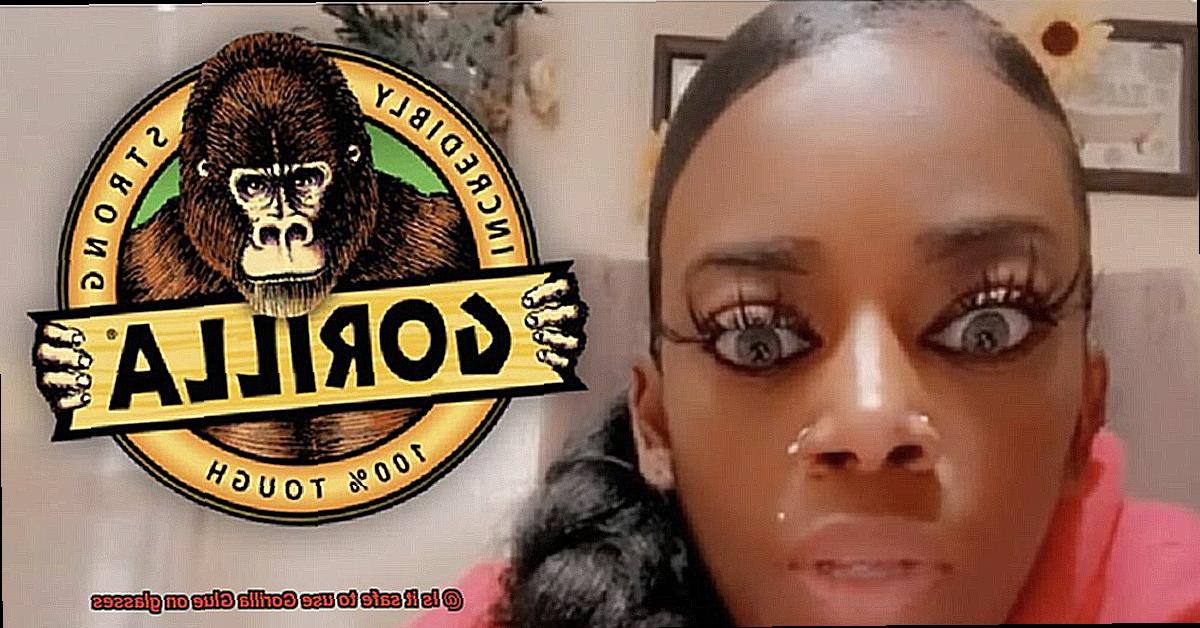
Difficulty of Removing Gorilla Glue from Glasses
Gorilla Glue is infamous for its incredible strength and durability. However, when it comes to removing this tenacious adhesive from glasses, a sticky situation arises. In this blog post, we will delve into the reasons why removing Gorilla Glue from glasses is an arduous task and explore potential methods to tackle this challenging predicament.
The Strong Bond:
Gorilla Glue forms an unyielding bond with surfaces, defying moisture and most solvents. This formidable adhesive property poses a significant challenge when attempting to remove it from delicate glasses frames and lenses.
Expansion Woes:
To compound the difficulty, Gorilla Glue expands as it dries. This expansion infiltrates every nook and cranny of the glasses, seeping into minuscule gaps or crevices. As a result, removing the glue completely becomes an uphill battle.
Potential Damage:
Forcefully removing Gorilla Glue from glasses risks damaging the frames or lenses. The glue can leave behind unsightly scratches and stubborn residue, compromising both the appearance and functionality of your beloved eyewear.
Methods for Removal:
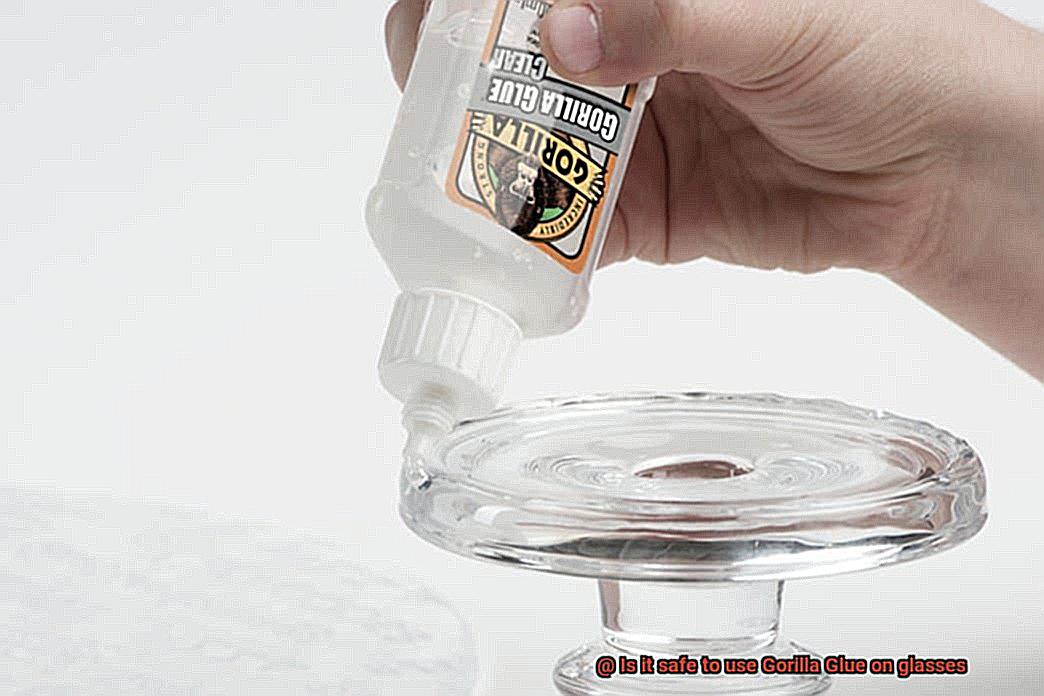
- Heat: Harnessing the power of heat by using a hairdryer or immersing the glasses in warm water can soften the glue’s grip. Once pliable, gently scrape off the softened glue using a plastic scraper or soft cloth.
- Solvents: Acetone or rubbing alcohol possesses the ability to dissolve certain adhesives, including Gorilla Glue. However, cautious experimentation on a small area of your glasses is vital to ensure no damage occurs during the removal process.
- Professional Assistance: Enlisting the aid of opticians or eyewear repair specialists is often the wisest choice. These experts possess the necessary experience and specialized tools to safely remove Gorilla Glue without compromising the integrity of your glasses.
Prevention is Key:
Taking preventative measures to avoid Gorilla Glue’s contact with your glasses is always preferable to the daunting task of removing it later. Utilize protective tape or cover your glasses with a cloth when working with adhesives, safeguarding your precious eyewear from accidental glue mishaps.
Recommended Adhesives for Glasses Repairs
Repairing glasses requires careful consideration when choosing the right adhesive. While Gorilla Glue may be a popular choice for other projects, it is not suitable for glasses repairs. In this article, we will explore why Gorilla Glue should be avoided and discuss recommended adhesives that are specifically designed for glasses materials.
Why Gorilla Glue is not suitable for glasses repairs:
- Expanding foam-like nature: Gorilla Glue’s expanding foam-like nature can cause significant damage to delicate frames or lenses if not accurately controlled during application. This can result in irreversible harm to your eyewear.
- Difficulty in removal: Gorilla Glue forms an incredibly strong bond, making it challenging to remove when adjustments or repairs are needed. Attempting to remove the glue can lead to further damage or even render the glasses unusable.
Recommended adhesives for glasses repairs:
- Cyanoacrylate-based adhesives (super glue): These quick-drying adhesives provide a strong bond and are suitable for glasses repairs. However, it is crucial to choose a formulation specifically designed for bonding glasses materials. This ensures compatibility and prevents any potential damage.
- Epoxy resins: Known for their durability and longevity, epoxy resins create a strong bond between different materials. They require mixing before application and usually have a longer curing time. Nevertheless, their strength and reliability make them an excellent choice for intricate or extensive repairs.
- UV-curing adhesives: Increasingly popular, UV-curing adhesives offer quick and precise bonding capabilities. These adhesives require exposure to UV light to cure, allowing better control over the bonding process. They are ideal for small repairs that require accuracy and speed.
Tips for using adhesives on glasses repairs:
- Follow manufacturer’s instructions: Always read and adhere to the instructions provided by the adhesive manufacturer. This ensures proper application and maximizes the adhesive’s effectiveness.
- Material compatibility: Ensure that the adhesive is compatible with the specific materials of your glasses. Different adhesives work best with different materials, such as plastic or metal frames.
- Seek professional advice: When in doubt, consult a professional optician or eyewear repair specialist for guidance on the best adhesive to use for your glasses repairs. They have the expertise and knowledge to provide tailored recommendations based on your specific needs.
Consulting an Eyewear Professional or Optician
When it comes to repairing your glasses, consulting an eyewear professional or optician is essential. While using glue may seem like a convenient fix, it’s crucial to seek expert advice to ensure the repairs are done safely and effectively. In this article, we will explore the importance of consulting a professional when it comes to eyewear repairs.
Material Compatibility:
Different types of glasses require specific adhesives that bond effectively without compromising the frame’s integrity. Whether your glasses are made of metal, plastic, or glass, an eyewear professional or optician can assess the material and recommend the appropriate adhesive for a strong and durable bond.
Avoid Potential Damage:
Using the wrong type of glue can lead to unintended consequences. For example, certain adhesives, like Gorilla Glue, expand as they dry, exerting pressure on lenses or frames and potentially causing cracks or breakage. By consulting a professional, you can avoid using adhesives that pose such risks and protect your glasses from further damage.
Preserve Aesthetics and Functionality:
Repairing glasses requires precision and skill to align and bond the various components accurately. Eyewear professionals have the expertise to handle these delicate tasks, ensuring your glasses retain their aesthetics and functionality after repairs. Trusting professionals guarantees that your glasses will look as good as new while providing optimal vision correction.
Safety and Accuracy:
Eyewear professionals have access to specialized tools and equipment needed for repairs. By consulting them, you can ensure that any modifications or repairs are performed safely and accurately, minimizing the risk of causing further damage to your glasses.
Preventative Maintenance:
In addition to repairs, eyewear professionals can provide valuable advice on preventative maintenance for your glasses. They can recommend suitable cleaning products and techniques that help prolong the lifespan of your eyewear, ensuring that you get the most out of your investment.
Warranty Considerations
We’ve all experienced the frustration of a loose hinge, a broken frame, or a missing nose pad on our beloved glasses. The temptation to grab the nearest adhesive and attempt a DIY fix is strong. However, before reaching for that tube of Gorilla Glue, it’s essential to consider the warranty implications and potential risks associated with this powerful adhesive.
The Pros and Cons:
Strength and Durability:
Gorilla Glue is renowned for its exceptional strength and durability, making it an attractive option for repairing glasses. Its powerful bond can provide long-lasting results.
However, this strength can also be a double-edged sword. The expanding properties of Gorilla Glue may lead to structural changes in the frames or even cause cracks in the lenses, rendering your glasses unusable.
Manufacturer Guidelines:
Eyewear manufacturers invest significant time and resources into developing specialized adhesives specifically designed for their products. These adhesives are formulated to ensure compatibility with the materials used in glasses.
By using Gorilla Glue, you deviate from the manufacturer’s guidelines and potentially compromise the integrity of your glasses. This could result in unforeseen issues such as discoloration, warping, or complete failure.
Warranty Coverage:
Many eyewear manufacturers offer warranties that cover manufacturing defects or other issues that may arise during normal use. These warranties provide peace of mind to consumers.
However, these warranties generally exclude damage caused by unauthorized repairs or misuse. Using Gorilla Glue on your glasses may fall into this category and could void any warranty coverage you may have.
Special Instructions:
Before reaching for that bottle of Gorilla Glue, it is crucial to read the warranty terms and conditions provided by your eyewear manufacturer. Understanding what is covered and what is excluded will help you make an informed decision.
If you are unsure about using this adhesive or any other repair method, consult with a professional optician or contact the manufacturer directly for guidance. They have the expertise to assess material compatibility, recommend suitable alternative options, and provide valuable advice on preventative maintenance for your glasses.
ttdom1Lets8″ >
Also Read: Can I use Gorilla Glue on glasses?
Conclusion
In conclusion, it is not safe to use Gorilla Glue on glasses.
This powerful adhesive may seem like a quick fix for loose frames or broken hinges, but it can cause serious damage to your eyewear. Gorilla Glue is designed for heavy-duty applications and is not suitable for delicate materials like glasses.
Using it on your spectacles can result in permanent discoloration, warping, or even breakage. It’s essential to use specialized adhesives specifically formulated for eyewear repairs.
So, resist the temptation to reach for that trusty Gorilla Glue when it comes to fixing your glasses and opt for safer alternatives instead.

